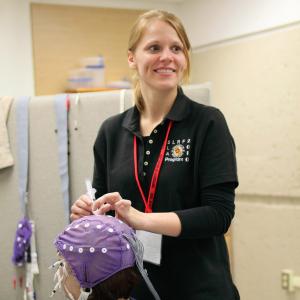LING Colloquium: Lisa Pearl (UC Irvine)
A new way to find developmentally meaningful variation in children's input: A look at syntactic knowledge across socio-economic status
Abstract: There’s variation in children’s input for language acquisition, and only some of it is “developmentally meaningful” that is, variation that impacts language acquisition. Developmentally-meaningful input deficits can lead to acquisition delays that may require targeted intervention to resolve. For instance, input-based delays appear across socio-economic status (SES), with children from low-SES backgrounds often behind their higher-SES peers when it comes to acquiring different types of language knowledge. We know low-SES language input can differ from high-SES input in many respects, but how do we identify differences that actually impact language acquisition?
A standard way is to notice that there is in fact an input difference of some kind, measure language acquisition outcomes, and see if that input difference correlates with those outcomes. A new complementary way I present here is to use developmental computational modeling to predict language acquisition outcomes on the basis of children’s input; only if the predicted outcomes differ is the input difference (potentially) meaningful. I demonstrate this developmental modeling approach on a case study of children’s acquisition of syntactic island constraints. This approach predicts no meaningful input differences across SES for acquiring this sophisticated syntactic knowledge; however, crucial input comes from different sources across SES.












